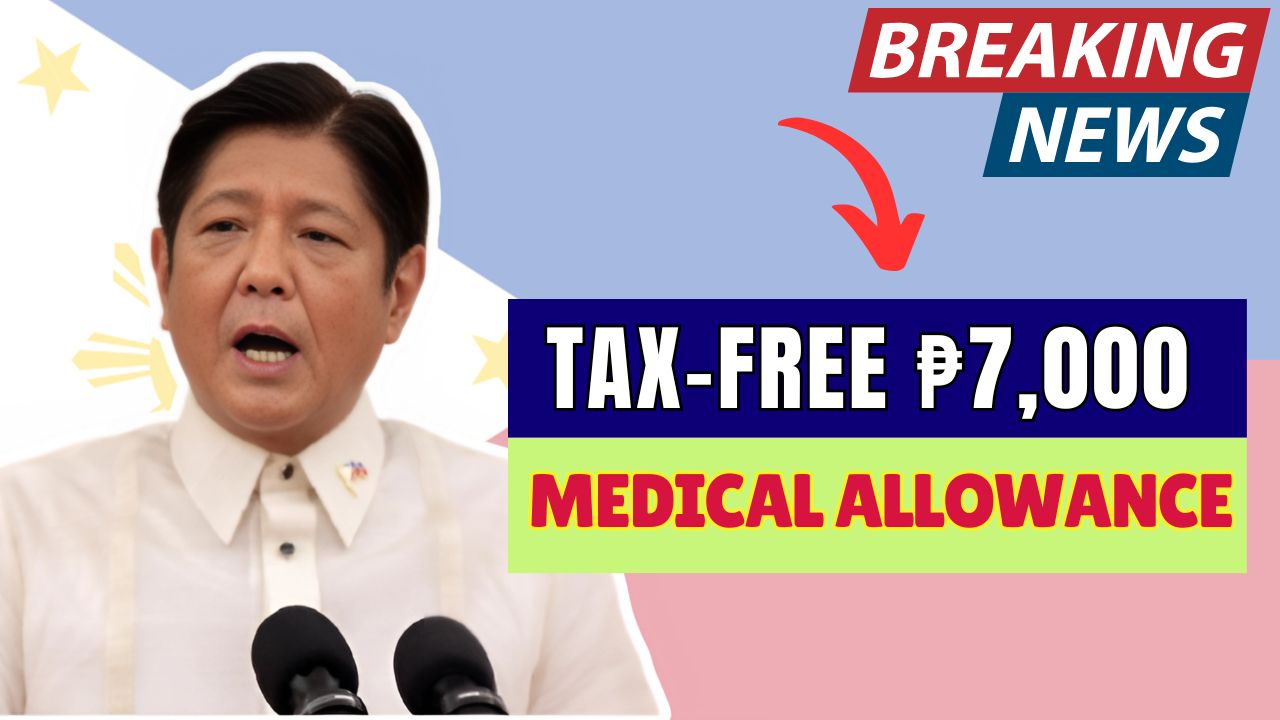In a move welcomed by many in the public sector, the Philippine government has officially approved a tax-free ₱7,000 medical allowance for all qualified government employees. This announcement marks a significant improvement in healthcare support for civil servants and underscores the administration’s commitment to employee welfare amidst rising medical and living expenses.
A New Step Toward Better Health Benefits
The ₱7,000 annual medical allowance aims to help government employees cope with routine healthcare needs such as medical check-ups, laboratory tests, medications, and preventive care. Unlike previous assistance programs that were subject to taxation or strict documentation, this latest update ensures that the full amount reaches the beneficiaries without deductions, enhancing both access and affordability.
By declaring the benefit tax-exempt, the government ensures that employees receive the full financial support intended for their well-being. This also aligns with broader public sector reforms focused on enhancing employee satisfaction, work-life balance, and financial security.
Who Is Covered Under the New Medical Allowance Policy?
All eligible government employees, including permanent, contractual, and casual workers in national government agencies, government-owned and controlled corporations (GOCCs), and local government units (LGUs), will benefit from the tax-free allowance. The move follows recommendations from the Department of Budget and Management (DBM) and is in accordance with the Civil Service Commission’s guidelines to standardize medical benefits across departments.
This universal application of the allowance ensures that even rank-and-file employees often overlooked in benefit packages will enjoy direct and tax-free healthcare support.
Implementation and Disbursement Details
The ₱7,000 medical allowance will be disbursed annually and will not form part of an employee’s taxable income. It will be credited either as a cash benefit or through reimbursement procedures, depending on the agency’s policies. Some departments may issue the full amount at the beginning of the year, while others may stagger it depending on budget availability.
All implementing agencies have been instructed to update their payroll systems accordingly and communicate clear timelines and usage instructions to their employees. No withholding tax will be applied to the allowance, and it is not subject to substitution or conversion into other benefits or cash incentives.
Positive Reactions from Employees and Public Sector Unions
Various government employee groups and unions have praised the announcement as a long-overdue and much-needed intervention. With healthcare costs continuing to rise, many workers especially those in lower salary grades view the tax-free allowance as a practical tool that adds real value to their monthly income. For some, it will mean no longer having to dip into personal savings for basic medical needs.
Additionally, this move is expected to boost morale and may even play a part in improving productivity and lowering absenteeism due to health-related issues.
More Than Just a Benefit A Policy Shift
Beyond the monetary amount, the tax-free nature of the allowance reflects a deeper shift in government policy toward prioritizing employee welfare. It shows that health is no longer treated as an afterthought in public service but as an essential component of good governance.
This allowance could serve as a precedent for other future benefits such as mental health programs, wellness initiatives, and family medical support potentially creating a more inclusive and supportive workplace environment in the public sector.
Conclusion: A Welcome Boost for Public Sector Workers
The approval of the ₱7,000 tax-free medical allowance represents a significant step forward in recognizing the everyday needs of government workers. It’s a simple yet powerful gesture that affirms the government’s responsibility to support its workforce not just with salaries, but also with holistic benefits that promote health, security, and dignity. As implementation begins, the hope is that this allowance becomes not just a one-time benefit, but part of a sustained effort to build a healthier and more motivated civil service.
